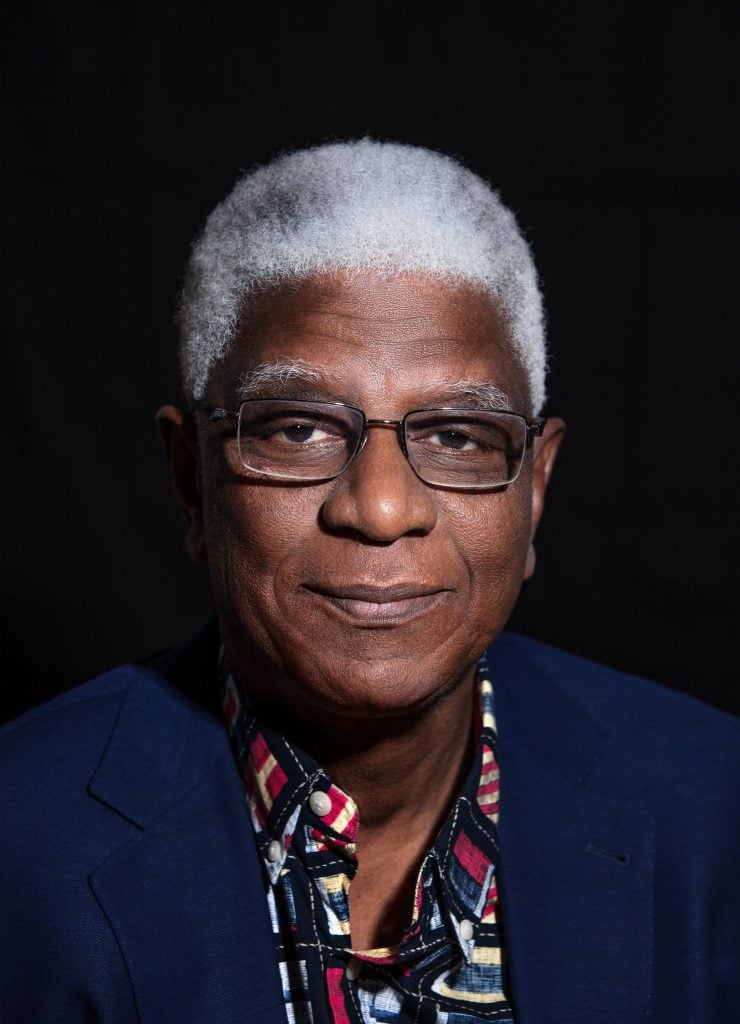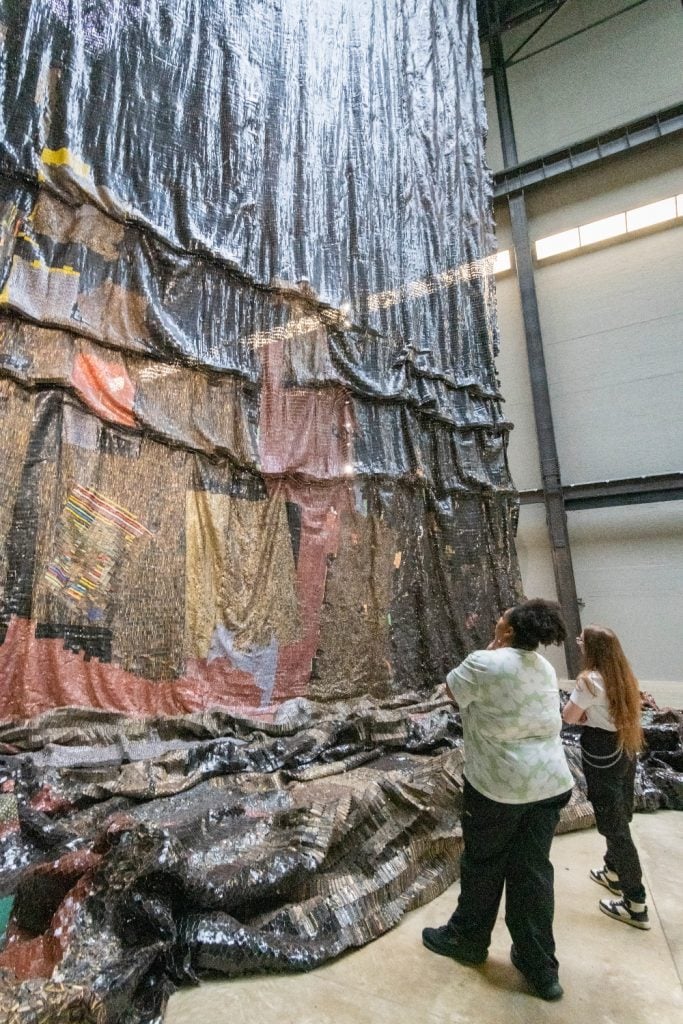Art World
See How Nigerian Artist El Anatsui Weaves Mesmerizing Tapestries Out of Cast-Off Materials
As part of a collaboration with Art21, hear news-making artists describe their inspirations in their own words.

As part of a collaboration with Art21, hear news-making artists describe their inspirations in their own words.

Caroline Goldstein

Ghana-born, Nigeria-based artist El Anatsui literally makes treasures out of trash. Standing in front of one of his large-scale undulating tapestries, seeing winking colors catch the light, one might not realize they are made from stitched-together bottle caps collected from discarded liquor bottles. The artist employs local studio assistants to construct his artworks, reflecting the history of international commerce and colonialism in Africa.
In October 2023, the artist’s site-specific installation was unveiled in Tate’s vaunted Turbine Hall, marking the debut of his largest indoor artwork to date. “Anatsui is one of the most distinctive artists today,” Tate director Karin Hindsbo said of the installation. “His highly innovative approach to sculpture and his unique choice of materials are instantly recognizable.”
In an exclusive interview filmed as part of Art21’s landmark series Art in the Twenty-First Century, the artist explains the genesis of his work and practice. His use of cast-off materials, which includes wood and ceramics in addition to bottle caps, is a direct commentary on his lived experience.

Hyundai Commission: El Anatsui: Behind the Red Moon installation view at Tate Modern. Photo: Lucy Green, © Tate.
“This idea of regeneration. Giving form to new life, or bringing about new hope,” he says. “I did these pieces at the time that I was already in Nigeria and the economy of Ghana was really at its lowest point. And I thought that that was my own way of affirming something positive. Destruction as a prerequisite for new ideas or for new growth.”
The bottle caps, adorned with logos and painted in bright colors, when stitched together, “happened to replicate that of the very popular fabric in Ghana, the kente cloth.” Although they are aesthetically appealing, the artist did not want ornament to overshadow the darker truths of the work. “When people started looking at it as textiles, the tendency is for them to stop looking for any meaning beyond that.” So, the artist returned to the notion of water, bottle caps, and liquor, and what tied them together. “How did liquor come into my culture and what does it mean?” he asks.
Anatsui wants viewers to take a more global view of the works and their components. “They are given a new life and I make them not objects that do something utilitarian, but objects of contemplation.”
Watch the video, which originally appeared as part of Art21’s series Art in the Twenty-First Century, below.
This is an installment of “Art on Video,” a collaboration between Artnet News and Art21 that brings you clips of news-making artists. A new season of the nonprofit Art21’s flagship series Art in the Twenty-First Century is available now on PBS. Catch all episodes of other series, like New York Close Up and Extended Play, and learn about the organization’s educational programs at Art21.org.